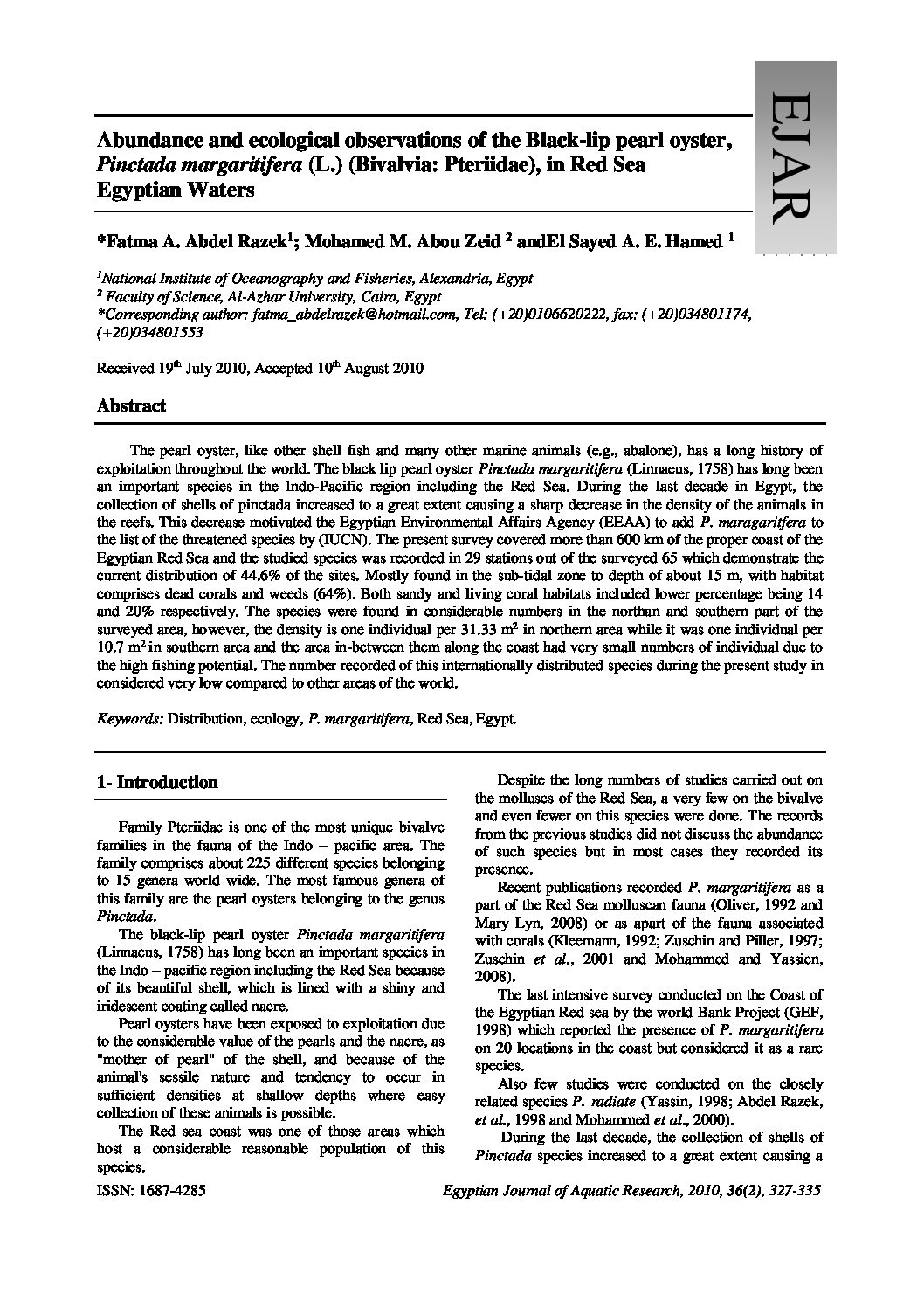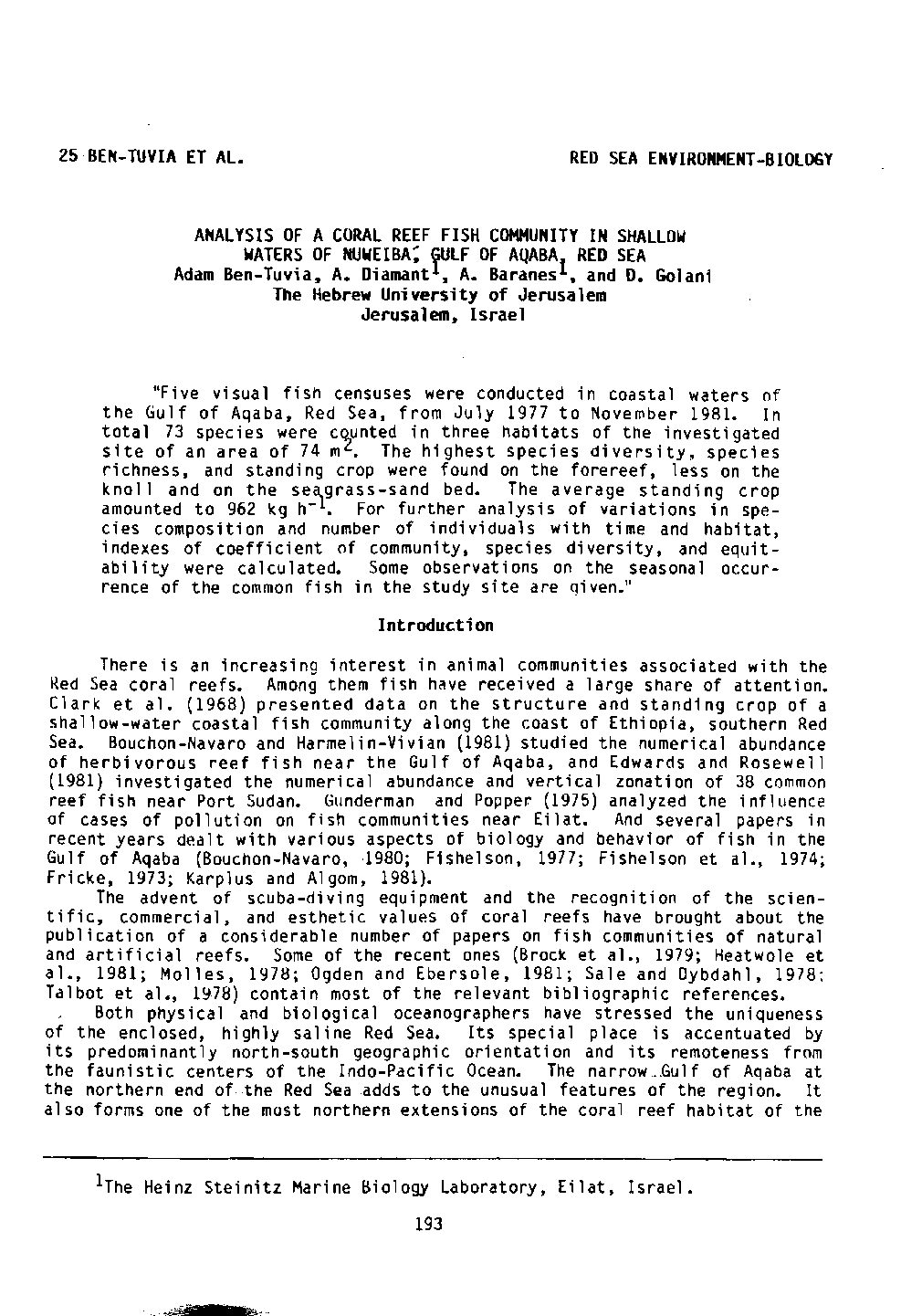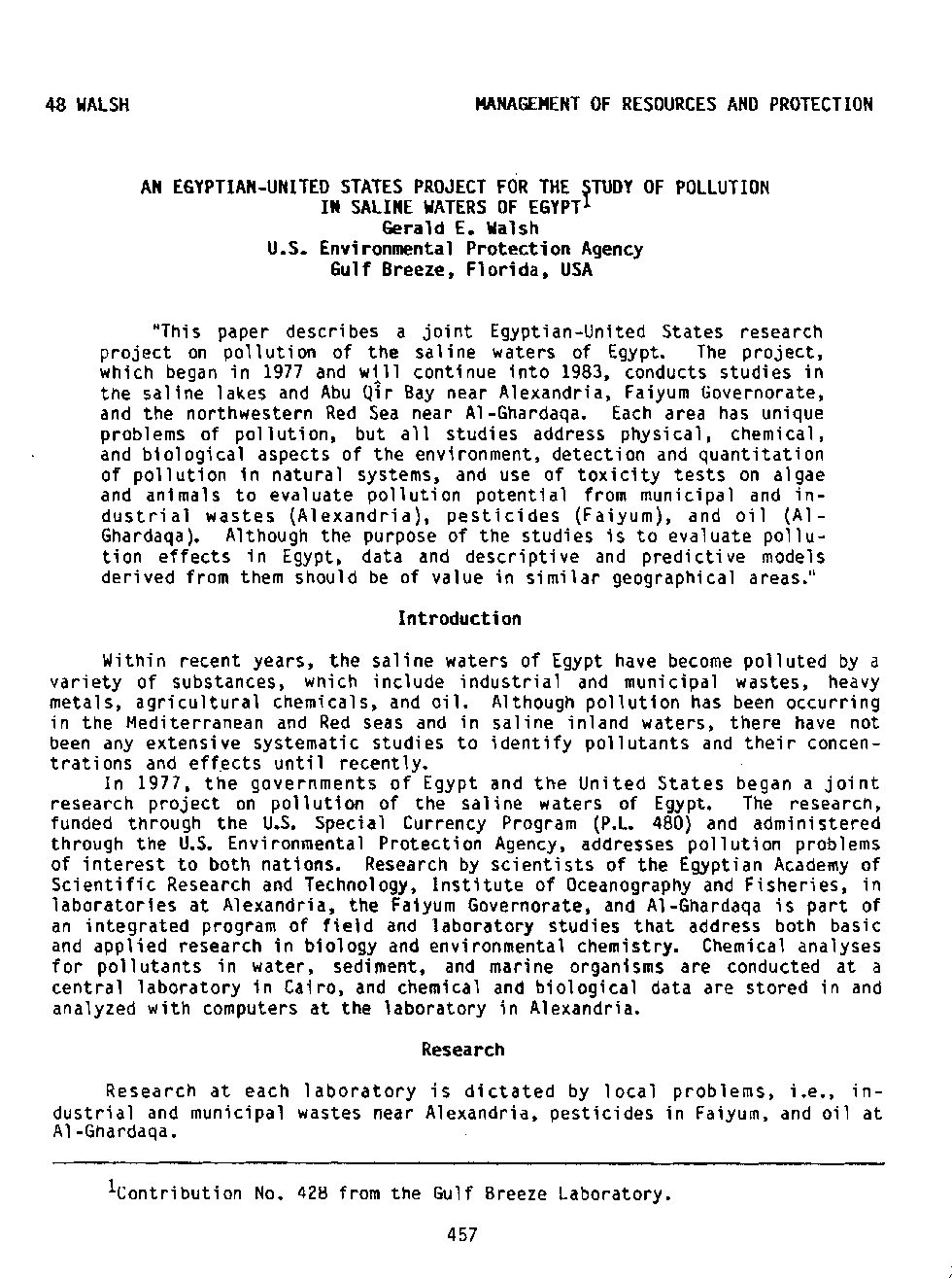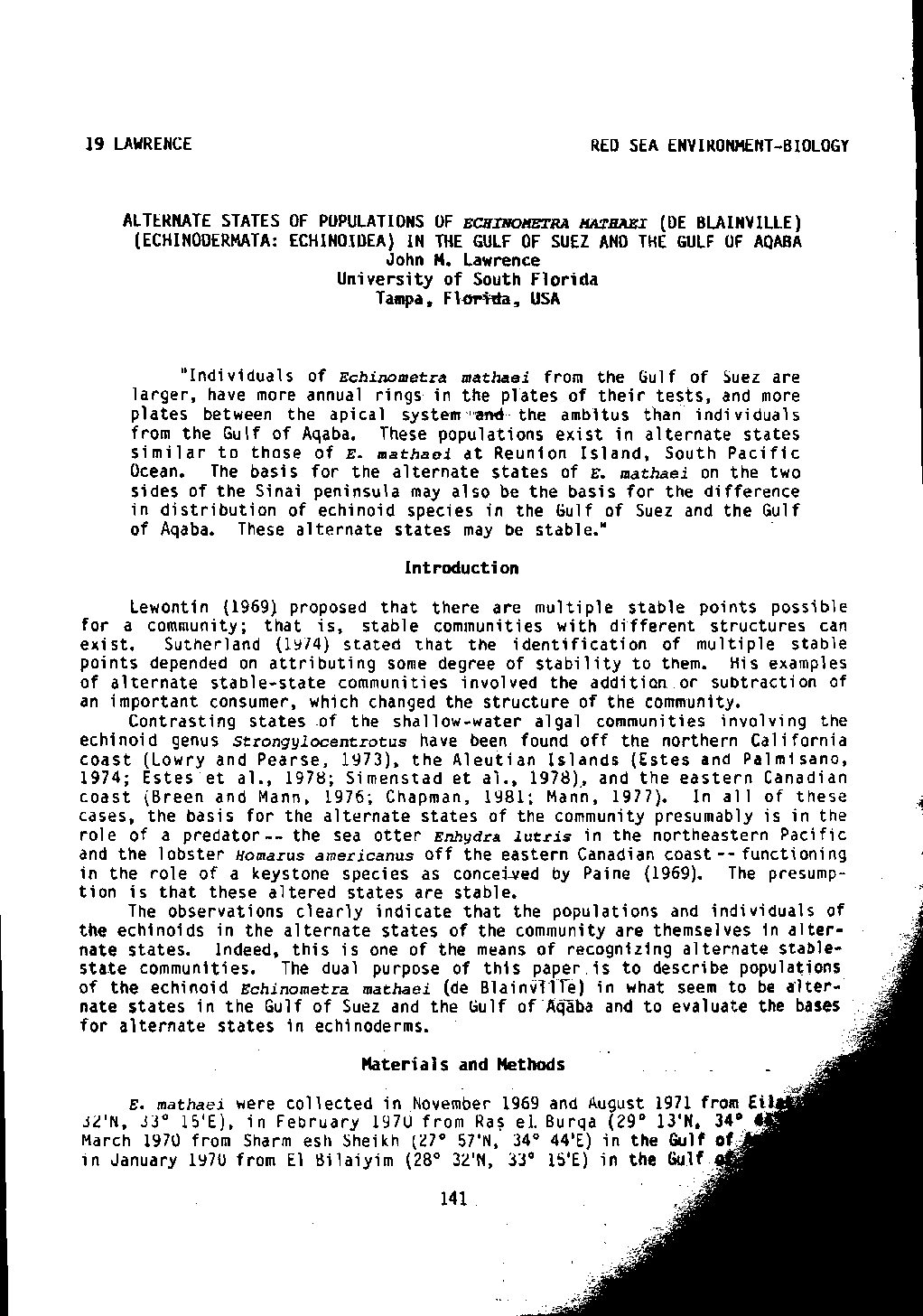Categories
vol-36Effect of exogenous hormonal treatment on growth, survival and
mucous cell activity during larval development of
Oreochromis niloticus
Mohamed A. Al-Absawey
National Institute of Oceanography and Fisheries Kayet Bey, Alexandria, Egypt
Email: [email protected]
Received 5th March 2010, Accepted 27th July 2010
Abstract
In Oreochromis niloticus larvae treated with cortisol (C0.1 ppm); L- Thyroxin (T0.05 or T0.1 ppm) and 75
mg/kg of food 17α Methyl testosterone (T0.05 ppm + MT, or T0.1 ppm + MT) to accelerate larval growth. Treated
larvae gave also a significantly higher survival rate than that of control. The treatment with exogenous hormones
improved larval growth, since increasing thyroxin from (T0.05 ppm or T0.05 ppm + MT) to (T0.1 ppm or T0.1 ppm
+ MT), the larvae displayed prominent increase in both their length and weight. These observations suggest that
therapy (thyroxin, cortisol and MT) may have a practical utility in fish culture. Exposure of O. niloticus larvae to
exogenous hormonal treatment enhanced the production of mucous cells in digestive tract. There was an increase in
the number of mucous cells in the elementary tract as well as quantitative changes of the mucous composition, the
enhancement of the digestive function, improved food utilization and activated the protective role of mucins. Both
the synthetic and secretory activities were increased in the mucosal layer of the numerous folds in the stomach of the
treated larvae with thyroxin for seven dph whereas, treated with 17α MT for 21 day post hatching (dph), as reflected
by staining affinity with periodic acid Schiff reagent and Alcian blue techniques. In treated O. niloticus larvae with
high dose there was an increase in the number of mucous cells in various parts of digestive tract, which contains
acidic mucosubstances when compared with control group.







